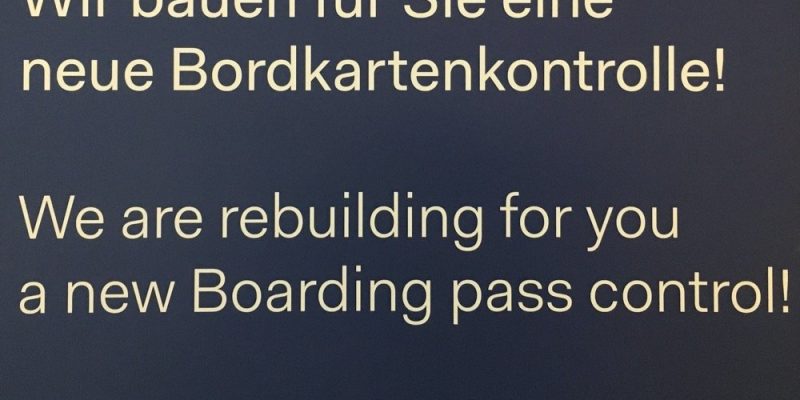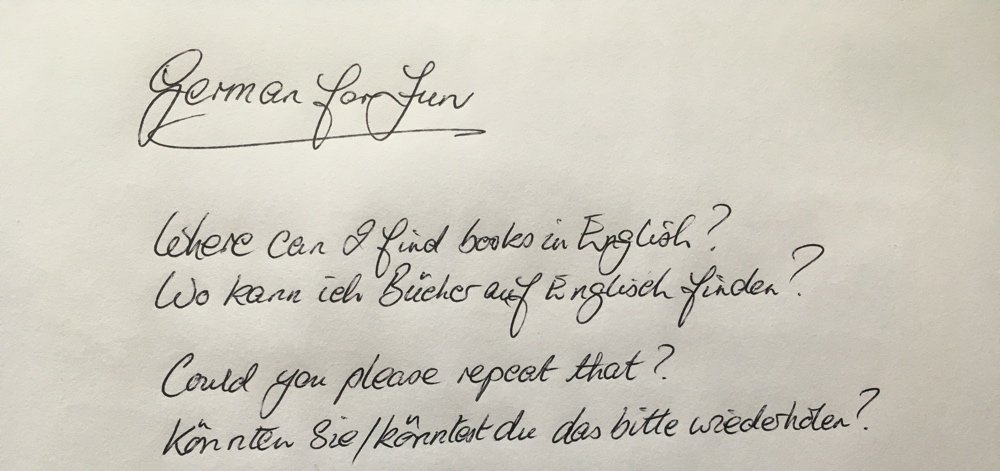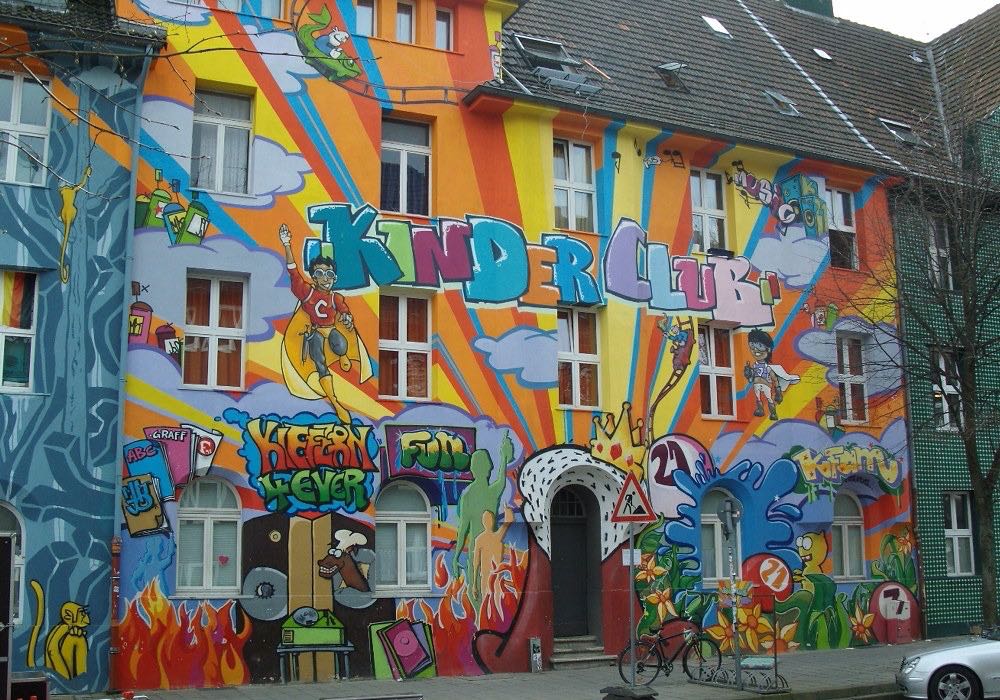Society & Folk
CUSTOMS AND HABITS IN DÜSSELDORF

Every culture has its own code of conduct or habits and so has Germany. Being in every day contact with German nationals quickly reveals simple rituals and manners of behaviour.
Tradition is the written or verbal passing on of customs, capabilities or knowledge. These can be scientific or concern fairy tales, myths, religions and crafts. They are passed on through peer groups or between generations. They help define cultures and societies, helping form their heritage.
Much of behaviour in Germany may appear strange to anyone who is not familiar with them. Even their advanced, collective attitude on the environment has become widespread in society.
Most would know that on the first day of April a family member, friend or colleague will play a trick on them. But why might a man sweep away straw on the steps of city hall? Some such customs share hundreds of years of tradition and even many Germans either do not know them or from where they originate.
Language curiosities
A delightful, subliminal element of the German psyche can come to the fore during discussions on a tangible topic. Imagine you state something you know to be true to the person with whom you are in conversation. They may retort the German words “das weis ich nicht“, which translates into “I don’t know that“. Notably, they do not state “das wusste ich nicht” or “I didn’t know that”. A highly fascinating phenomenon, which occurs often in a similar style.
Another quirk is the official speak used on signage. Examples are in abundance, especially when buildings or roads are being reconstructed. Typically a sign will proudly state “wir bauen für Sie“, which means “we are building for you“. My inner self always resists upon reading those words, since I had not asked them to. They are perhaps creating something that benefits me too, however they cannot pass the buck to me, or you, for any inconvenience caused.
Shaking hands
The typical form of greeting in Germany is to shake hands and Germans love doing it. No matter if one is leaving or arriving, shaking hands with family, friends or business contacts, it is regarded as sign of honour or respect as well as a welcome. Direct eye contact and certainly not crossing another person’s arm or hand when greeting someone in a group are two important norms worth following. Kissing or pseudo kissing each cheek is very popular nowadays between opposite genders and often between males too.
Hours of rest
Hours of rest taken quite seriously in Germany are usually from 1 pm till 3 pm and from 10 pm till 7 am on weekdays, which includes Saturday. Sunday is a traditionally day of rest and in residential areas it is prohibited to disturb others through noisy activities such as mowing of lawns, listening to loud music or labouring. Sunday is a family day in Düsseldorf too, when Germans drive to the countryside to enjoy their free time, a day for sports activities, to meet friends, read or do any quiet housework.
Punctuality
One of the most recognisable characteristic traits of Germans is punctuality. If they fix a time they are serious about it and do their best to be on time. Great stress is put on punctuality with other virtues such as reliability and good organisational skills are often associated with it.
However, some may notice two quirks. In some circles there is a phenomenon known as the academic quarter of an hour, theoretically allowing highly frustrating unpunctuality. Presenters at business functions often wait for the stragglers thus frustrating punctual attendees. The opposite can be the case at social functions where many invitees appear far too early.
Motor vehicles
The Germans are obsessed by their cars and are crazy about them. They are the love of their lives and the faster, the fancier, the cleaner the better. SUVs have become the most important symbol of status and personality and driving someone else’s car is one of the highest honours that can be conferred.
The weather
Many people talk about the weather to start a conversation and so do Germans. But instead of then changing the topic they can stick to it. For ages! The weather is one of their favourite topics. As soon as they are surprised by weather that differs from the forecast, they start to complain and chat long and hard throughout the day.
No matter if it is cold, wet or warm or even hot, it never seems right and it always leaves a niche for arguments, discussions, complaints and debate.
Steps and doorknobs
Older customs are dying out. Sweeping straw from steps, Treppenfegen, is a witty tradition for men to celebrate a birthday, while cleaning doorknobs, Klinkenputzen, is for women when they become thirty and are not yet married. They are released from this task only if a virgin or young servant kisses them.
Twenty-fifth birthdays
Another ancient custom exists for twenty-fifth birthdays upon which women receive a wreath of cartons and men a wreath from old socks hung on the door.
By Vincent Green, Jul 11 2020

GERMAN FOR FUN
We stand in a foreign culture finding ourselves pointing, gesticulating and hoping to be understood. Germans mostly speak at least some English. However, some expats relocating to Düsseldorf may wish to carry a few basic but helpful words with them for use in awkward moments.

WALKING IN DÜSSELDORF
A great way to get to know Düsseldorf is to take an inspiring and rewarding walk, allow impressions to cause a pause, interact and allow details to remain more memorable. Admiring quaint side streets, strolling the promenade, the riverside or numerous woodlands bring joy to the soul.

PETS IN DÜSSELDORF
Germans, on the whole, love and respect pets and are friendly towards dogs. Dogs are permitted on public transport and inside restaurants but keeping a pet on a leash is a must. Dog ownership in Düsseldorf is highly regulated and taxed through a compulsory licence fee.
The city guide for expats
Amazing Capitals Düsseldorf is a fresh and informative location guide full of insights for expats. Dedicated to helping international professionals make choices, settle and participate, it presents all facets of the city on the Rhine. Helping businesses to attract and retain international talent.

